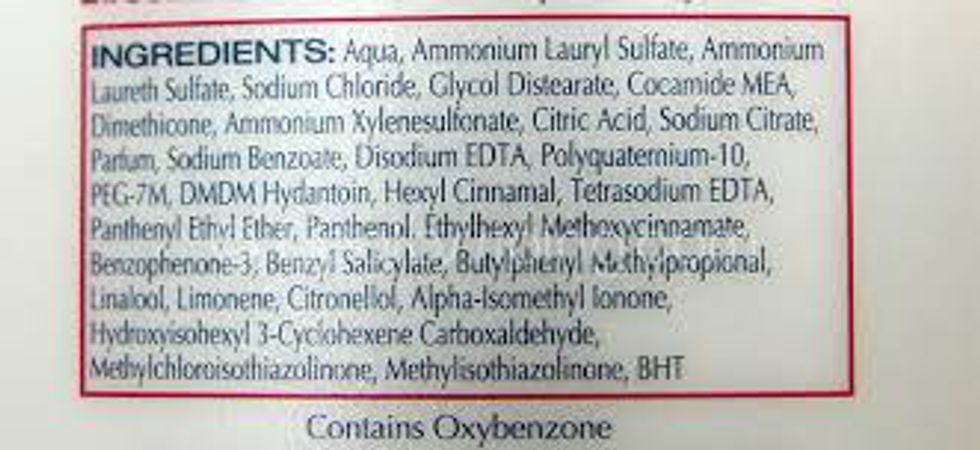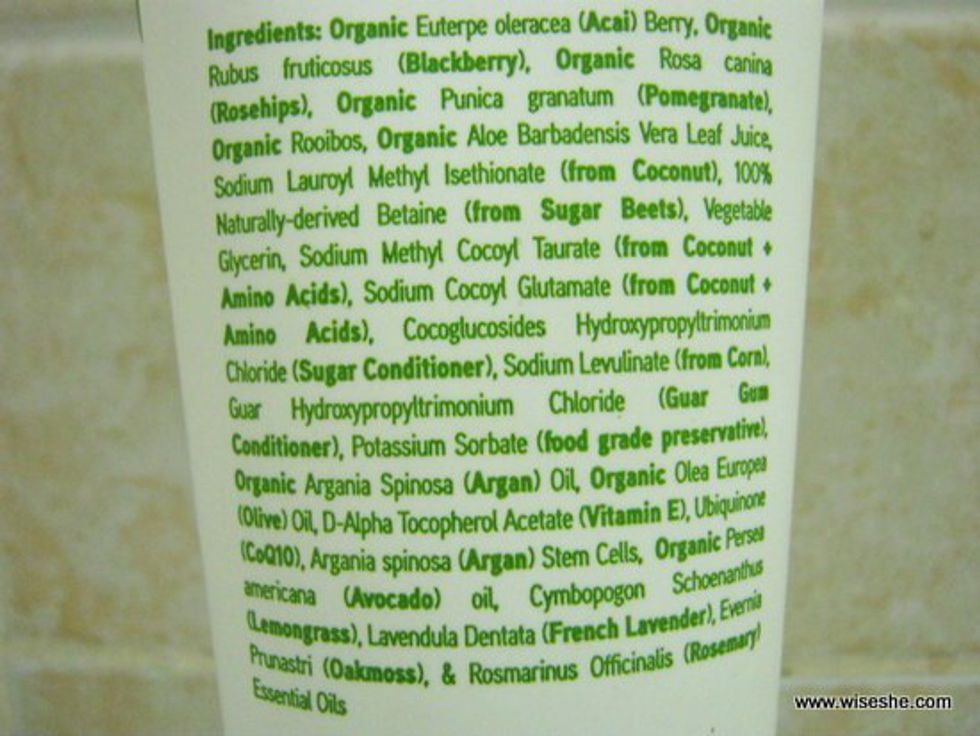The millennial generation, as a whole, can be seem as a pretty progressive one. We have fought for civil rights across the board: for POC, women (though it better be intersectionally), the LGBTQIAP+ community, the 99%. We are statistically a much more open-minded, compassionate group of humans than the ones who were born before us.
We're also fighting for the environment! Well...sort of.
Many millennials (people currently in their very late teens to early-mid 30s) express their concern with the state of our Earth, believe in global warming, and desire change. However, how many of us are actually being active about this change, rather than passive? How many of us make a conscious effort, multiple times a day, to be conservative with our resources that are so readily available to us (all hail first-world privilege)? Some of us do, yes. But it's quite alarming realizing how many don't.
But wait! Instead of being Debbie Downers and Moping Matthews (came up with that last one) over how crappy we are to Earth and there's no hope and oh god here comes the panic attacks, I have listed some simple suggestions to use every day to make our lifestyles less demanding of our planet–because homegirl has been looking kind of rough the past couple of centuries.
1. Google your town's recycling guidelines.
For instance, Norman, Oklahoma's can be found here: http://www.normanok.gov/utilities/sa/sanitation-re.... Just go to your city's website–where you usually go anyway if you pay bills online–go under "Utilities", then "Recycling Guidelines". If you already recycle (good for you, boo), it may be surprising to see what you can and can't throw in that trusty blue bin. Start paying attention to which code number is at the bottom of your plastic, because some numbers aren't recyclable, depending on the county. In most counties, Styrofoam, plastic shopping bags, and food-soiled containers (such as pizza boxes), cannot be recycled. When these items get thrown into recycling bins anyway, the recycling center will move them to the garbage and eventually a landfill. Considering plastic and foam can take centuries to decompose, and considering they were thrown individually into that recycling bin, they usually end up being blown around into trees and the ocean, killing millions of animals every year from accidental indigestion or suffocation...which leads me to #2.
2. Use less non-recyclable items.
This means remembering to bring a reusable bag each time you go shopping, using a reusable thermos instead of buying coffee in a Styrofoam or other non-recyclable cup, and using Tupperware or glass containers to store food instead of aluminum foil or plastic cling wrap.
3. Get out of the mindset that certain reusable things are gross.
We use paper towels because the idea of using a washcloth or dishtowel over and over seems less fresh-n-clean. Not true. As long as it doesn't get soiled, it's completely sanitary for about a week. Simply have extra on hand so when you throw one batch in the washer, you still have a couple to spare. If you like to knit or crochet, those work perfectly...or they're 75 cents each at IKEA. Come on.
4. Pay attention to the things you use that end up going down a drain.
Shampoo and conditioner, dish and hand soap, household cleaner, toilet cleaner, hair dye, sunscreen, and on and so forth. You don't necessarily have to look for strictly organic cleaners (because they can sometimes be pricey, key word being sometimes) but it helps to check that the ingredients list is a nice combination of stuff you can pronounce and what you wouldn't mind going into the oceans. For example, here is a list of ingredients on the back of a Pantene bottle:
Other than most of those words being great tongue twisters, Oxybenzone is especially one of the worst ingredients to end up in the ocean–specifically the coral reefs. It's also the active ingredient in most sunscreens.
To compare, an ingredient list from Acure shampoo (which is only about $3 more than Pantene):
Sure, there are some tricky words in there, but note that all the chemical-esque words are the scientific names for what is being derived from natural ingredients, which they so helpfully put in bold font.
5. Have a few less shopping sprees at stores like H&M, Forever 21, Target, and others alike.
The mass-production of clothing at these chains are dirt cheap for a reason. Not only are they produced from unsustainable, unethical working environments, but they are not biodegradable. And as crazy as it sounds, many people are still deciding to simply throw away their unwanted clothing instead of reusing or donating. And while donating is one of the best ways to go, thrift stores at a national level throw away longer-lived donations if there's too much of a surplus. These clothes then end up in a landfill because they are non-recyclable. To lesson your impact, shop more at thrift stores and from sustainable brands. But, also ask yourself whether you're shopping to get something you actually need or to just find a bargain, because the latter is much more wasteful than you think. Instead, consider buying articles of clothing that are an investment, whose style and fabric will last much longer (I'm calling you out, terribly tempting $2 crop tops).
6. Know that buying Organic is not an all-or-nothing deal.
My parents started buying organic and local when I was in middle school, and since then nearly everything they buy sports that green and white label. While this is amazing, it's not the most realistic for a college student. That's where Pinterest saves lives. There's this amazing concept I discovered there called the "Clean Fifteen" and the "Dirty Dozen"; the fifteen are produce items that–if there aren't any available at the grocery store or if you don't want to fork up the extra dollars–are pretty much fine if bought non-organic. These include sweet potatoes, grapefruit, cabbage, eggplant, cantaloupe, avocados, and onions. Usually it's because of the type of skin outside the fruit or vegetable, or because these are simply the ones that are found to have the fewest trace of pesticides. Instead, really focus on the dirty ones; strawberries, apples, cucumbers, peaches, grapes, berries, tomatoes, any kind of lettuce, and also peanut butter and grains. Eggs are also extremely important to not only buy organic, but pasture raised, as "cage-free" or "vegetarian-fed" do not necessarily mean these chickens are not held in close captivity and subject to sickness and other inhumane conditions.
7. Don't give up on your efforts when you forget to do one (or all) of the above from time to time.
Okay, if I'm running late, and I did not have time to make my coffee, I may grab one from Starbucks. I have done my fair share of throwing pizza boxes into the recycling bin. I have bought items from every brand and shop I've mentioned above. But instead of taking on the mindset of "ignorance is bliss", I recognize the environmental mistakes I've made and then actively decide to change them in the most realistic, effective way I can. It has made saving the planet much easier and less of a chore.
Think of it as trying to get healthier; instead of going on an extremely strict, short-term diet, it's best to find a lifestyle that works for you and still gets the job done. Helping the environment isn't a part-time job. As long as we live here, we've got to clean up a little from time to time. Sometimes that means spending a little more money. Sometimes it's spending a little more time. But if we aren't willing to do so, we'll keep cheating on our diet, keep going back to square one, keep being stagnant in our responsibilities that come with being tenants on Earth...and then it will be our generation and those following us that will face the worst from a very pissed off landlord.





















